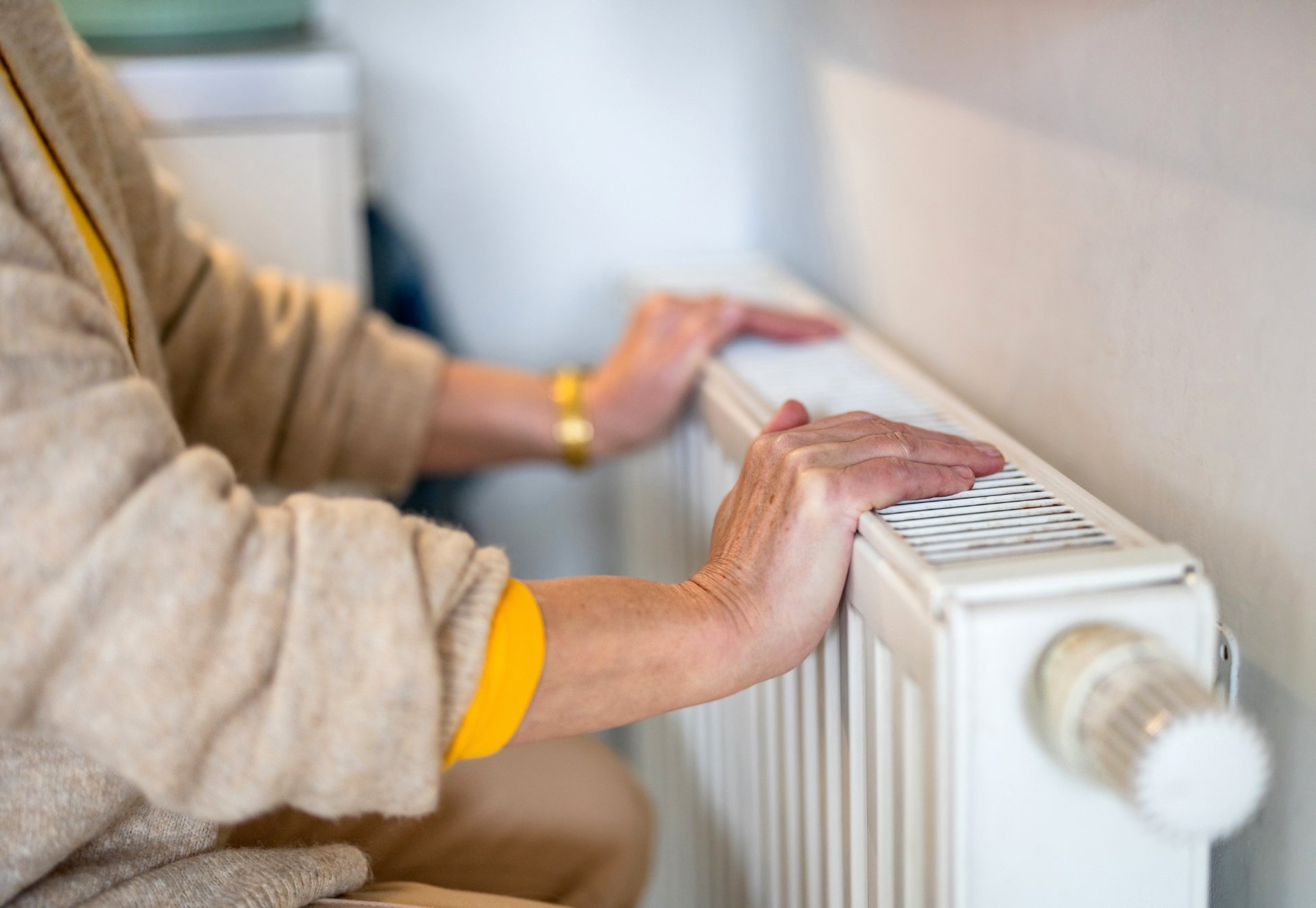Check your boiler
- A warm home is essential both for comfort and health, especially for older or more vulnerable people, or if you’re recovering from a period of illness. Ideally you should heat your home to a temperature of at least 18 °C.
- If you haven’t been using your central heating in the summer, it’s a good idea to switch it on as soon as possible to test that it works. A boiler service can also find any faults and ensure everything is running as it should.
- Boiler maintenance, repair or replacement can be expensive. If you or someone you’re caring for need financial support in this area, you can read our advice on what winter fuel bill support may be available to you. You can check your entitlement to all government support and benefits here.
Store important contacts
- It can be useful to have your energy provider’s customer advice line and an emergency out-of-hours boiler repair contact written close to your home phone, and/or stored in your mobile phone’s contacts. Having quick-to-access phone numbers makes unexpected situations such as power outages much less stressful.
- Older and disabled people can sign up for the Priority Services Register in case of gas, water or electricity outages -this is a free service provided by water and power suppliers. The scheme has several benefits, but most importantly it will give you priority access to support in the event of utility outages.
- Your homecare provider can also support you with a care plan and contacts if you rely on electricity for your care – just ask.
Check your home for easy repairs
- It’s worth going from room to room and making sure door and window seals are working, and that there are no obvious leaks, holes, or damaged surfaces. Small repairs can make a world of difference to the warmth and dryness of your home.
- Looking outside at the exterior of the property for any blocked gutters or roof problems can also prevent damp or water ingress issues before the rain and cold sets in.
- There are often government grants and energy provider discounts available for heat-retaining measures such as roof and loft insulation and double glazing. Funding may be available to assist with the costs of draught-proofing your home.
Check you have enough warm clothes and bedding, and winter equipment
- Ensure you have sufficient socks, and winter items such as scarves, hats, and gloves and that they are easy to access. Now is also the time to bring out warm, waterproof outerwear such as a coat and a jacket. Make sure they fit and are in good repair before you need to wear them.
- A selection of blankets on the bed and in other parts of the house where you’re frequently sat, such as the living room, will help keep you warm. Draught excluders are a low-cost way to prevent heat from escaping your home through cracks in doors.
- Having a torch in your bedroom and kitchen can help if there’s a power cut, as well as a power bank to charge your phone. Plug-in night lights, activated by motion sensors, can help guide you to other rooms or to doors, preventing trips in the dark.
Get free, impartial advice
For accurate, up to date general information and support about homecare, your county’s adult social services department and the Citizen’s Advice Bureau can offer advice and answer questions you may have. Nationwide, Age UK’s advice line can also provide advice and support 8AM-7PM, 365 days of the year on 0800 678 1602.
Contact us
Ethica is an experienced provider of home care across the county of Hertfordshire. We’re happy to answer any questions you might have about home care – contact us by phone on 01442 501162, or by email at herts.team@ethicacare.co.uk. We’re open Monday-Friday 9AM-5.30PM and Saturday-Sunday 8AM-6PM.
For queries outside of Hertfordshire, you can contact our London office on 0207 1128186 or via email at team@ethicacare.co.uk.
